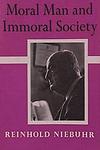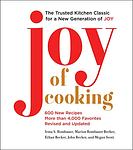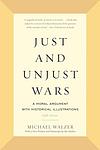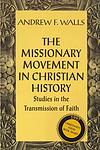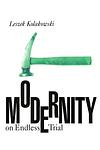A Century in Books
This is one of the 305 lists we use to generate our main The Greatest Books list.
-
Natural Right and History by Leo Strauss
This book is an exploration of the concept of natural rights and their relation to history. The author argues that the idea of natural rights is a fundamental aspect of Western civilization and is essential for its survival, but also notes that this concept has been largely forgotten or misunderstood in the modern world. The book examines the origins and development of natural rights, from ancient Greece to the American Revolution, and critiques modern political philosophies that have moved away from this idea. It also discusses the relationship between natural rights and history, and the implications of this relationship for the future of Western civilization.
The 1412th Greatest Book of All Time -
Moral Man And Immoral Society by Reinhold Niebuhr
"Moral Man and Immoral Society" is a critical exploration of the complexities and contradictions between personal ethics and collective morality. The book argues that individuals are capable of moral behavior, but groups and societies often act on selfish interests, leading to social injustice and inequality. The author examines the limitations of traditional ethical concepts in addressing systemic issues and advocates for the use of power and pragmatic strategies to achieve social justice, while also acknowledging the potential moral compromises involved. This work challenges readers to reconsider the dynamics of morality and power within societal structures.
The 4916th Greatest Book of All Time -
Humanist Manifesto 2000 by Paul Kurtz
"Humanist Manifesto 2000" is a forward-looking declaration that outlines a vision for a global society deeply rooted in humanist principles and scientific understanding. It emphasizes the need for critical thinking, ethics, and democracy to address the challenges of the 21st century, including environmental issues, technological advancements, and social inequalities. The manifesto advocates for a universal commitment to human rights and a shared responsibility for the planet, promoting a cooperative and peaceful coexistence among all people, transcending national, ethnic, and religious boundaries.
The 6837th Greatest Book of All Time -
Ethics by Dietrich Bonhoeffer
"Ethics" is a profound exploration of the moral challenges faced by individuals in a complex world. The book delves into the nature of ethical behavior, arguing that true morality arises not from following a set of rules, but from a direct relationship with God. The author discusses the concept of "responsible action," where decisions are made in response to God's call, and the importance of understanding the reality of evil and sin. Throughout, the text grapples with the tension between the ideal of absolute goodness and the practical realities that necessitate compromise and sacrifice, offering a compelling framework for ethical decision-making rooted in faith and community.
The 4916th Greatest Book of All Time -
The Joy of Cooking by Irma S. Rombauer, Marion Rombauer Becker, Ethan Becker
This book is a comprehensive guide to home cooking, providing readers with a wide range of recipes, techniques, and advice for all kinds of dishes. It covers everything from appetizers to desserts, with clear instructions and illustrations to make the process easy and enjoyable. The book also includes helpful tips on meal planning, food safety, and nutrition, making it a valuable resource for both beginners and experienced cooks.
The 523rd Greatest Book of All Time -
Dogmatics In Outline by Karl Barth
"Dogmatics in Outline" presents a concise exploration of Christian doctrine, framed by the Apostles' Creed and derived from lectures delivered in the aftermath of World War II. The text distills the essence of Christian faith, emphasizing the centrality of Jesus Christ in theology and the importance of the Church's teaching tradition. The author argues for a dynamic and living engagement with the Christian message, rejecting both rigid orthodoxy and vague liberalism, and advocating for a theology that is both faithful to the historical teachings of the Church and responsive to contemporary human experience.
The 4916th Greatest Book of All Time -
Black Lamb and Grey Falcon by Rebecca West
"Black Lamb and Grey Falcon" is a comprehensive and detailed travelogue of Yugoslavia, penned by a British author during the brink of World War II. The book beautifully interweaves history, politics, culture, and personal experiences to paint a vivid picture of the Balkan region. It also serves as a profound reflection on the impending war and the author's concerns about the rise of fascism in Europe, making it not just a travel book but also an essential historical document.
The 376th Greatest Book of All Time -
That Hideous Strength by C. S. Lewis
The novel explores the moral and spiritual struggles faced by its characters as they contend with a sinister scientific organization aiming to control humanity. Set in a quiet English university town, the story follows a sociologist and his wife as they become entangled with the National Institute for Co-ordinated Experiments, which seeks to manipulate human life through advanced technology and ruthless tactics. As the couple is drawn deeper into this morally corrupt world, they must decide where they stand in the cosmic battle between good and evil, with the help of a mysterious company that aligns with divine forces.
The 4916th Greatest Book of All Time -
Integral Humanism by Jacques Maritain
"Integral Humanism" is a philosophical work that explores the concept of humanism grounded in the spiritual and intellectual traditions of the West, particularly through a Thomistic framework. The book argues for a vision of society that harmonizes the spiritual and temporal needs of individuals, advocating for a civilization where Christian values, personalism, and communal life are integrated. The author critiques both the materialistic tendencies of modernity and the inadequacies of classical liberalism, proposing instead a society that respects human dignity, embraces moral truths, and fosters a genuine sense of community and common good.
The 4916th Greatest Book of All Time -
Brave New World by Aldous Huxley
Set in a dystopian future, the novel explores a society where human beings are genetically bred and pharmaceutically conditioned to serve in a ruling order. The society is divided into five castes, each with its specific roles. The narrative follows a savage who rejects the norms of this new world order and struggles to navigate the clash between the values of his upbringing and the reality of this technologically advanced, emotionless society. His resistance prompts a deep examination of the nature of freedom, individuality, and happiness.
The 42nd Greatest Book of All Time -
Just And Unjust Wars by Michael Walzer
The book is a seminal work in the field of ethics and international relations, exploring the complex questions surrounding the morality of war. It delves into the just war theory, which seeks to distinguish between justifiable and unjustifiable uses of organized armed forces. The author scrutinizes historical conflicts and contemporary wars to discuss the ethical limits of military force, the rules of engagement, and the moral responsibilities of combatants and noncombatants. The analysis provides a framework for evaluating the conduct of armed forces and the decisions of military leaders, emphasizing the principles of justice, human rights, and international law.
The 5137th Greatest Book of All Time -
The Structure of Scientific Revolutions by Thomas Kuhn
This influential book examines the history of science, focusing on the process of scientific revolutions. The author argues that scientific progress is not a linear, continuous accumulation of knowledge, but rather a series of peaceful interludes punctuated by intellectually violent revolutions. During these revolutions, known as paradigm shifts, the old scientific worldview is replaced by a new one. The book also popularized the term 'paradigm shift' and challenged the previously accepted view of science as a steadily progressive discipline.
The 180th Greatest Book of All Time -
The Missionary Movement In Christian History by Andrew Walls
"The Missionary Movement in Christian History" explores the significant role of missionary activities in the spread and development of Christianity throughout history. The book examines how cultural exchanges influenced the practice and perception of Christianity in various contexts, highlighting the adaptability and transformation of Christian faith as it intersected with diverse cultures around the world. The author discusses the implications of these interactions for both the missionary movement and the broader historical and cultural developments, providing insights into the dynamic relationship between religion and cultural change.
The 6608th Greatest Book of All Time -
Modernity On Endless Trial by Leszek Kolakowski
"Modernity on Endless Trial" is a collection of essays that delve into the philosophical and cultural critiques of modernity, exploring the tensions and challenges inherent in the Western intellectual tradition. The author examines a wide range of topics, including the role of religion, the legacy of Enlightenment, the critiques of Marxism, and the philosophical underpinnings of modern political ideologies. Through these essays, the author offers a profound reflection on the nature of human belief, the limits of reason, and the ongoing struggle to find meaning and value in an increasingly secular and fragmented world. The book serves as a critical inquiry into the intellectual crises of the modern age, questioning the assumptions and hopes that have shaped contemporary Western thought.
The 6233rd Greatest Book of All Time -
Christianity And Liberalism by J. Gresham Machen
"Christianity and Liberalism" is a theological treatise that argues that liberal Christianity, which emerged in the early 20th century, is not a mere variation of Christianity but is, in fact, a completely different religion from traditional Christianity. The author critiques the liberal theological movement for its departure from orthodox Christian doctrine, particularly in its views of Scripture, the nature of Jesus Christ, and the fundamentals of salvation and grace. He asserts that the liberal approach undermines the very foundations of Christian faith by prioritizing humanistic and social values over biblical truth and divine revelation. The book calls for a return to what the author considers the true essence of Christianity, grounded in historical doctrinal positions and biblical authority.
The 4916th Greatest Book of All Time -
Crisis Of The House Divided by Harry V. Jaffa
"Crisis of the House Divided" is an in-depth analysis of the debates between Abraham Lincoln and Stephen A. Douglas during the 1858 Illinois Senate race. The book examines the philosophical and moral conflicts embodied in the arguments of both figures, particularly focusing on issues of slavery and the nature of the Union. Through a detailed exploration of their speeches, the author argues that Lincoln's stance was not only a political strategy but also a profound moral vision, which laid the groundwork for his presidency and the future of American democracy. The work is celebrated for its rigorous scholarship and its contribution to the understanding of American political thought.
The 4916th Greatest Book of All Time -
The Complete Stories of Flannery O'Connor by Flannery O'Connor
This comprehensive collection of short stories showcases the author's exploration of the human condition, particularly in the American South. The stories, known for their dark humor, religious themes, and grotesque characters, delve into the complexities of morality, ethics, and the struggle between good and evil. The author's unique blend of Southern Gothic style and religious allegory creates a vivid portrait of a society grappling with its own contradictions and shortcomings.
The 177th Greatest Book of All Time -
The Varieties of Religious Experience by William James
This book is an exploration of the diverse range of religious experiences, from the mainstream to the mystical. The author applies a psychological and philosophical approach, examining the individual, personal experiences of spirituality rather than organized religion. The book covers topics such as conversion, saintliness, and mysticism, and argues that religious experiences, rather than religious institutions, should be the primary focus of religious study.
The 410th Greatest Book of All Time -
Crossing The Threshold Of Hope by Pope John Paul II
In "Crossing the Threshold of Hope," the author provides a profound exploration of his faith and addresses complex theological and philosophical questions about Christianity. Through a series of letters, he discusses the nature of faith, the existence of God, the role of the Church, and the challenges of contemporary moral issues. This book offers insights into his personal beliefs and provides guidance on how individuals can find hope and meaning in their lives through spiritual commitment and religious understanding.
The 6505th Greatest Book of All Time
First Things Magazine, 19 Books
The editors of First Things Magazine, an influential journal of religion & public life, released this list back in 2000 when R. J. Neuhaus was editor-in-chief
Added 21 days ago.
This list has a weight of 57%. To learn more about what this means please visit the Rankings page.
Here is a list of what is decreasing the importance of this list:
- Voters: specific voter details are lacking
- Voters: are mostly from a single country/location
- List: criteria is not just "best/favorite"
- Voters: Voters seem to have an agenda/bias of some kind
- List: only covers 100 years
If you think this is incorrect please e-mail us at [email protected].

